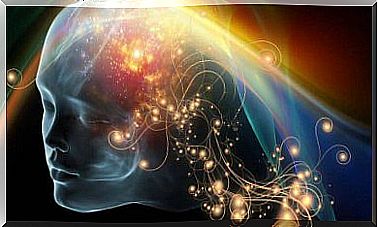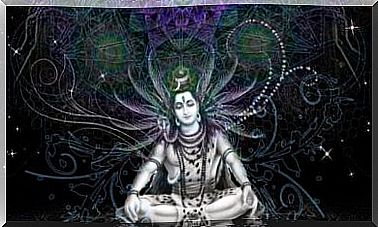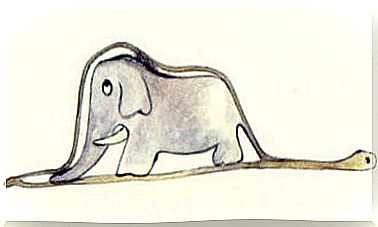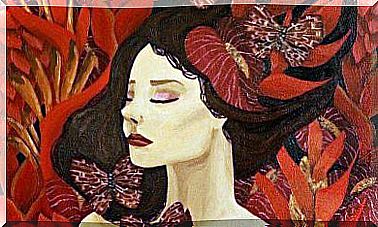Sleep Paralysis, A Terrifying Experience
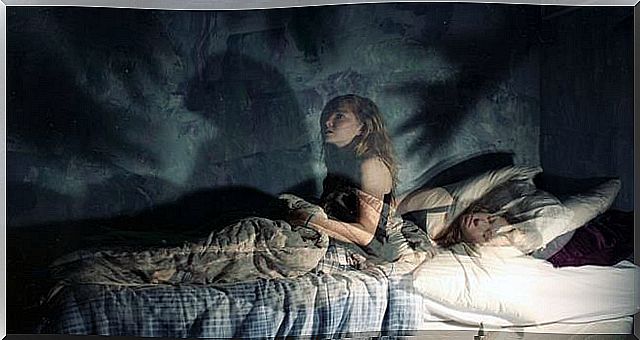
Before explaining sleep paralysis, when asking what sleep is, how would we define this phenomenon? It is not easy to answer this question, at least from a non-academic point of view. Even so, we can say that sleep is a fundamental physiological function.
Thus, sleep is defined as “a functional, reversible and cyclical state, with some characteristic manifestations, such as relative immobility and/or an increase in the response threshold to external stimuli. At the organic level, there are variations in biological parameters, accompanied by a modification in the mental activity that characterizes the act of dreaming” (Buela-Casar, 1990a).
During sleep, there are major changes in the body’s functioning, which include changes in blood pressure, heart rate and respiratory rate, body temperature and hormone secretion, among others. Furthermore, it was observed that there is a large number of variables, both physical and behavioral, which are largely responsible for many sleep disorders.
sleep disorders
The international classification of sleep disorders includes four categories (Buela-Casar, 1990a):
- Dyssomnias: sleep onset and maintenance disorder, excessive sleepiness and sleep disorders associated with circadian rhythm.
- Parasomnias: waking disorders, sleep-wake association and rapid eye movement (REM) sleep-associated disorders
- Disorders associated with medical or psychiatric disorders.
- Other possible disorders about which there is not enough information to be considered specific to sleep.
In this article, we’re going to look at one type of parasomnia: sleep paralysis.
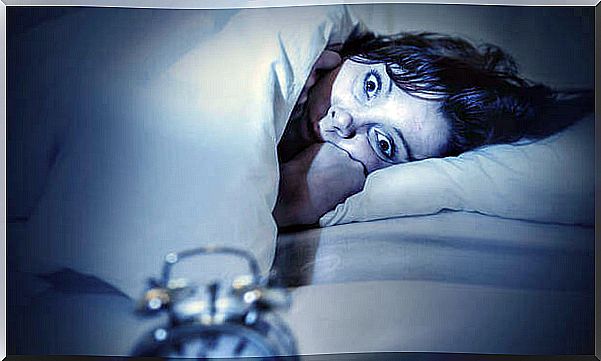
What is sleep paralysis?
The paranormal events that some people claim to have gone through (diabolic attacks, visits by spirits and kidnappings carried out by extraterrestrials, among others) probably hide episodes of the so-called sleep paralysis.
Sleep paralysis could explain the reports about ghosts and extraterrestrials, because during the attack the victims perceive this presence, usually harmful, very intensely. In addition, they have unusual kinetic sensations such as being dragged out of bed, rocking, flying or falling.
These episodes can lead to out-of-body experiences to their fullest extent. Sleep paralysis might land, but it will never be dangerous. Fortunately, your episodes last only a few seconds.
However, these events are far from paranormal. Sleep paralysis is a temporary inability to perform any type of voluntary movement that happens during the transition period between the sleep state and wakefulness.
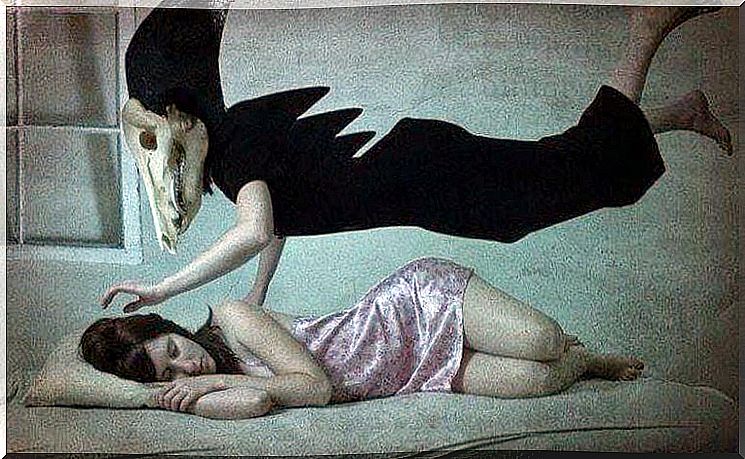
It can happen when you start to fall asleep or when you wake up and is usually accompanied by a great feeling of anguish. This feeling often lasts between one and three minutes, after which the paralysis spontaneously ends. Paralysis usually disappears automatically if the person is touched or shaken. Although the affected individual cannot move, he is able to see and hear normally. In some cases, it can also emit sounds.
As we see, an episode of sleep paralysis is terrifying to the person suffering from the disease and is usually remembered with a great deal of anxiety.
sleep paralysis symptoms
There are several symptoms that happen during these episodes, most of them are horrible for individuals who suffer from the disease:
- Visual hallucinations: There are people who say they have seen someone inside the room where they sleep, despite not being able to recognize him. This presence is often felt at the periphery of the field of vision or camouflaged in the shadows of the room.
- Auditory hallucinations: essential, mechanical and intense sounds are usually perceived, such as hums, noises, whispers, roars, chimes, blows, vibrations, whistles, screams or moans. In other cases they are identifiable sounds, such as the ringing of the telephone, sirens, tools, electric motor, knocking on the door, the noise of dragging furniture, breaking glass or dishes, strange music, etc.
- Breathing Difficulty: People who suffer from sleep paralysis may experience chest pressure, difficulty breathing, or choking. These symptoms cause great anguish and panic because there is a fear of suffocation.
- Sensation of presence: the person can experience the feeling that in the house where they live there are strange “presences”. She can even notice how the presence moves, enters the room and approaches the bed. Some people report that they feel like they’re being watched, but they don’t know where.
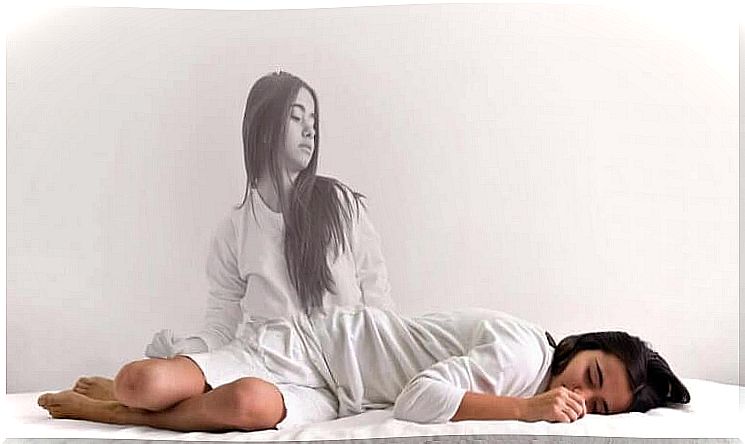
Why does it happen?
Sleep paralysis is sometimes linked to other disorders such as sleep apnea and, especially, narcolepsy. However, it usually occurs in isolation, when the person is suffering from a moment of intense stress or pressure.
What happens is that when you go to sleep there are some circuits of neurons that are still very excited due to stress. Then nightmares occur and the person wakes up suddenly. However, the body does not react as quickly because it is in the REM phase and therefore the muscles are lacking in tone. This is why a person cannot move despite being aware of what is going on around him.
If you’ve ever had an episode like that, don’t worry, nothing strange is happening. It’s important that you don’t get scared, which isn’t easy. When you remember the episode, repeat to yourself that it was just a bad dream, something like a nightmare, only with your eyes open. This will provide peace of mind.
Bibliography
• Choliz, M. (1994). How to beat the insomnio. Madrid: Pyramid.
• Buela-Casal, G. (2002). Sleep disorders. Madrid: Synthesis.





